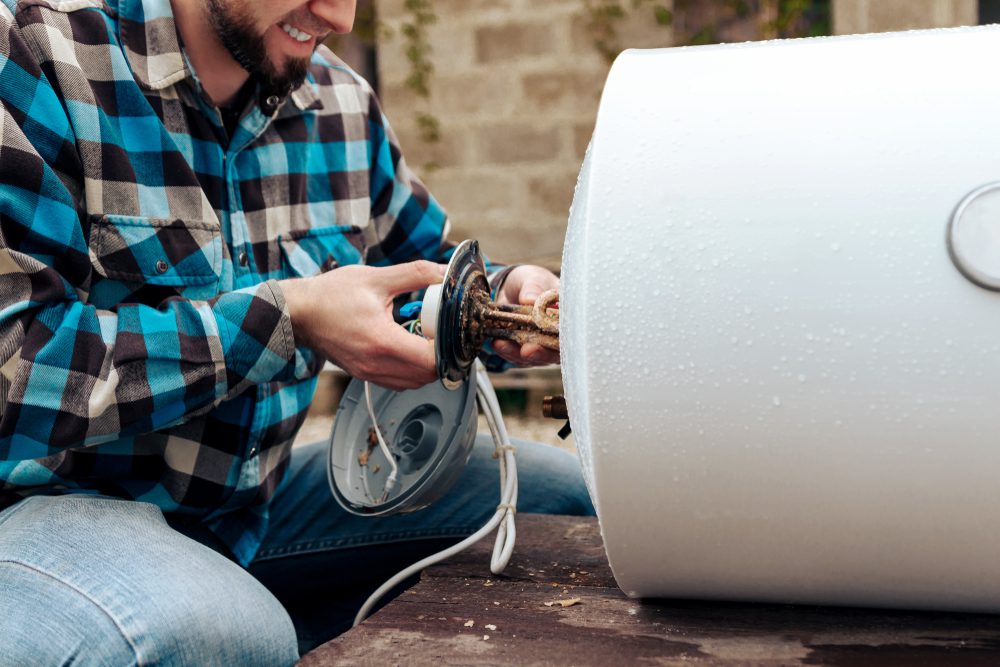Responding to the Standard Water Heater Crisis Scenarios
Responding to the Standard Water Heater Crisis Scenarios
Blog Article
Do you find yourself searching for details around The Importance of Water Heater Maintenance?

A water heater is just one of the most important standard appliances that can be discovered in a house. With hot water heater, you do not require to undergo the tension of heating water by hand every single time there is a requirement to take a bath, do the laundry, or the recipes. Nonetheless, there is always an opportunity that your hot water heater would certainly break down as with many mechanical devices.
It is necessary to keep in mind any type of little malfunction and tackle it quickly prior to points get out of hand. Most times, your water heater starts to malfunction when there is an accumulation of debris as a result of constant usage. As a preventative measure, regular flushing of your water heater is suggested to prevent debris buildup and also prevent useful failure.
Common hot water heater emergencies and also how to manage them
Too little warm water
It may be that the water heater can't support the hot water need for your house. You could update your water heating unit to one with a larger capability.
Rising and fall water temperature level.
Your water heater could begin creating water of different temperature levels typically ice scalding or chilly hot. There might be a requirement to replace either the heating or the thermostat system of your water heater.
Leaking hot water heater tank.
In this scenario, you must turn off your water heating system, permit it to cool down, as well as thoroughly look for the source of the problem. At times, all you require to do is to tighten up a few screws or pipeline connections in cases of small leaks. If this doesn't function and the leakage persists, you could need to use the services of a technician for a proper replacement.
Tarnished or stinky water
When this happens, you require to recognize if the issue is from the water or the tank source. If there is no funny scent when you run chilly water, after that you are certain that it is your water heating system that is malfunctioning. The odiferous water can be triggered by corrosion or the accumulation of germs or debris in the water heater storage tank.
Conclusion
Some home owners disregard little warning as well as minor faults in their hot water heater unit. This only results in additional damages and also a feasible full failure of your device. You must take care of your water heater faults as quickly as they come near prevent even more expenditures as well as unnecessary emergency problems.
With water heating units, you don't require to go through the anxiety of home heating water manually every time there is a requirement to take a bathroom, do the washing, or the recipes. It may be that the water heater can't sustain the warm water need for your apartment. Your water heater could start creating water of various temperature levels usually ice scalding or cold hot. If there is no amusing scent when you run cold water, after that you are particular that it is your water heater that is malfunctioning. The smelly water can be triggered by corrosion or the build-up of germs or debris in the water heater container.
Common Water Heater Issues and What You Should Do
What Type of Water Heater Do You Have?
Before we begin it’s first important that you identify the type of water heater you have on your property. There are two main types of water heaters out there: conventional and high efficiency.
Both of these types of products typically use either gas or electricity to heat power. There are also solar water heaters that use a thermal collector on the roof or yard to heat the water.
While these models are not as common, they can cut heating costs in half. In this article, we will focus on conventional and high efficiency.
How Do My Electric and Gas Water Heater Work?
Though they look similar, electric and gas water heaters work very differently. It’s important to know their basic function because often problems can be specific to the heating source.
In the electric model, a thermostat on the side of the machine detects the temperature of the water in the tank. When the temperature needs to rise electricity flows to a heating element suspended in the water.
Gas models also use a thermostat device — typically with a mercury sensor at the tip and an additional sensor called a thermocouple. The thermocouple detects whether the pilot light is on and controls the flow of gas.
When the thermostat drops below the appropriate level gas is released which becomes ignited by the pilot light. The flame heats the bottom of the water tank which causes hot water to rise and cold water to drop.
This natural circulation continues until the water reaches the desired temperature. Then, the thermostat triggers the gas control valve to shut off the flow of gas.
What Are the Most Common Issues and How Do You Fix Them?
https://happyhiller.com/blog/common-water-heater-issues-and-what-you-should-do/

I am just very serious about Common Hot Water Heater Problems and I am hoping you enjoyed reading our page. Sharing is good. Helping others is fun. We love reading our article about Warning Signs You Need Water Heater Repairs.
About This Report this page